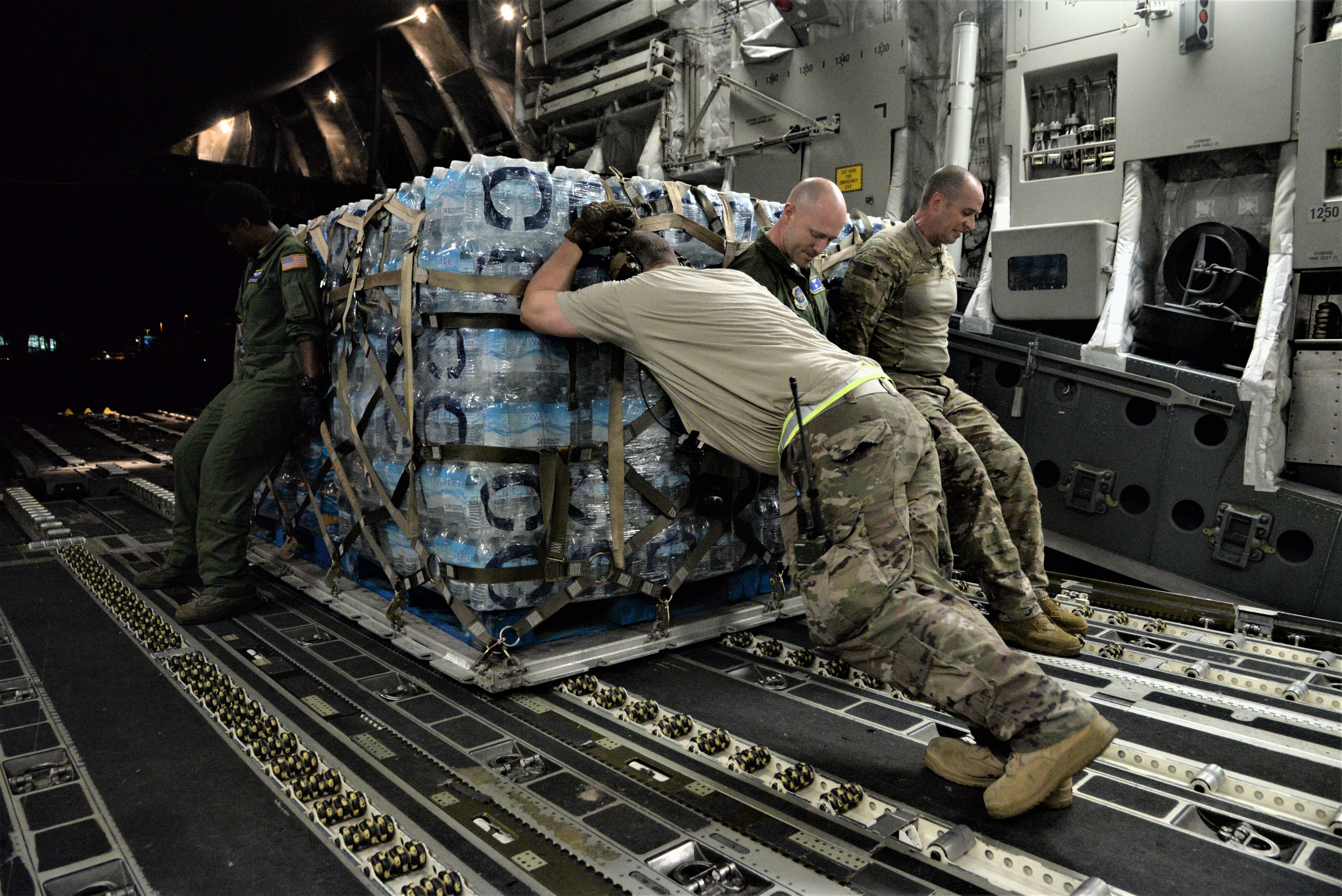
Members of the 3d Airlift Squadron's Reach 7170 crew and 123rd Contingency Response Group airmen unload food and water from a C-17 to be distributed to hurricane survivors at San Juan Luis Muñoz Marín Airport in San Juan, Puerto Rico, on Sept. 30, 2017. Air Force photo by TSgt. Matt Davis.
The Defense Department is delaying the deployment of additional US forces to Afghanistan as a result of the “finite number” of US transportation aircraft, which are currently in high demand Stateside following the recent hurricanes in Texas, Florida, and Puerto Rico, the Pentagon said Thursday.
Defense Secretary Jim Mattis, in testimony earlier this week, said the military’s response to storms such as Hurricane Maria has shown it is “all hands on deck” in helping American citizens. This, in turn, is delaying future operations
Lt. Gen. Kenneth McKenzie, director of the Joint Staff, said Thursday the delay for Afghanistan is because there are only so many air lifters available to bring troops and equipment to the theater. It takes aircraft to flow in forces, and available aircraft have been doing a “variety of things” in support of FEMA, flying missions such as bringing in medial professionals, generators, and communications equipment to areas devastated by the hurricanes.
There are currently about 11,000 troops in Afghanistan, a number that has not changed significantly since President Trump announced his new strategy for south Asia in August. The Pentagon, however, is avoiding specific announcements of deployments to avoid giving “aid” to the enemy, McKenzie said.
In his testimony earlier this week, Mattis said changes in the rules of engagement for US forces have been a positive change to help “us employ … airpower fully.”
These changes came as the Air Force, for the first time in about five years, deployed tankers to Afghanistan, basing them at Kandahar Airfield. The move was to get gas “closer to the fight” as US aircraft are conducting an increasing amount of air strikes, Air Forces Central Command boss Lt. Gen. Jeffrey Harrigian said last month.